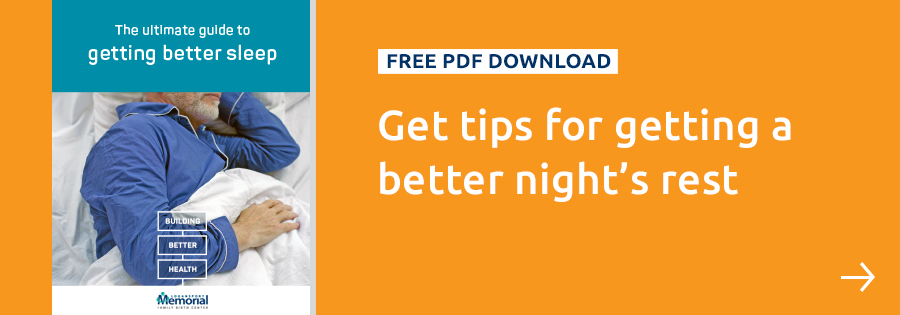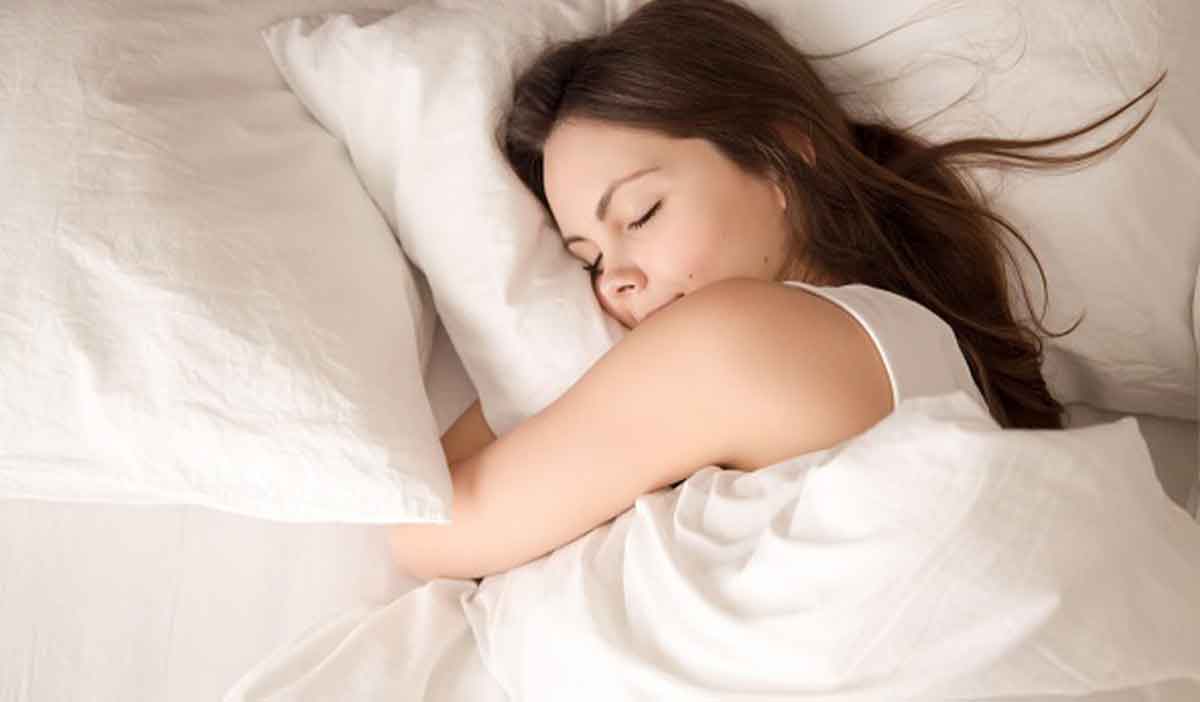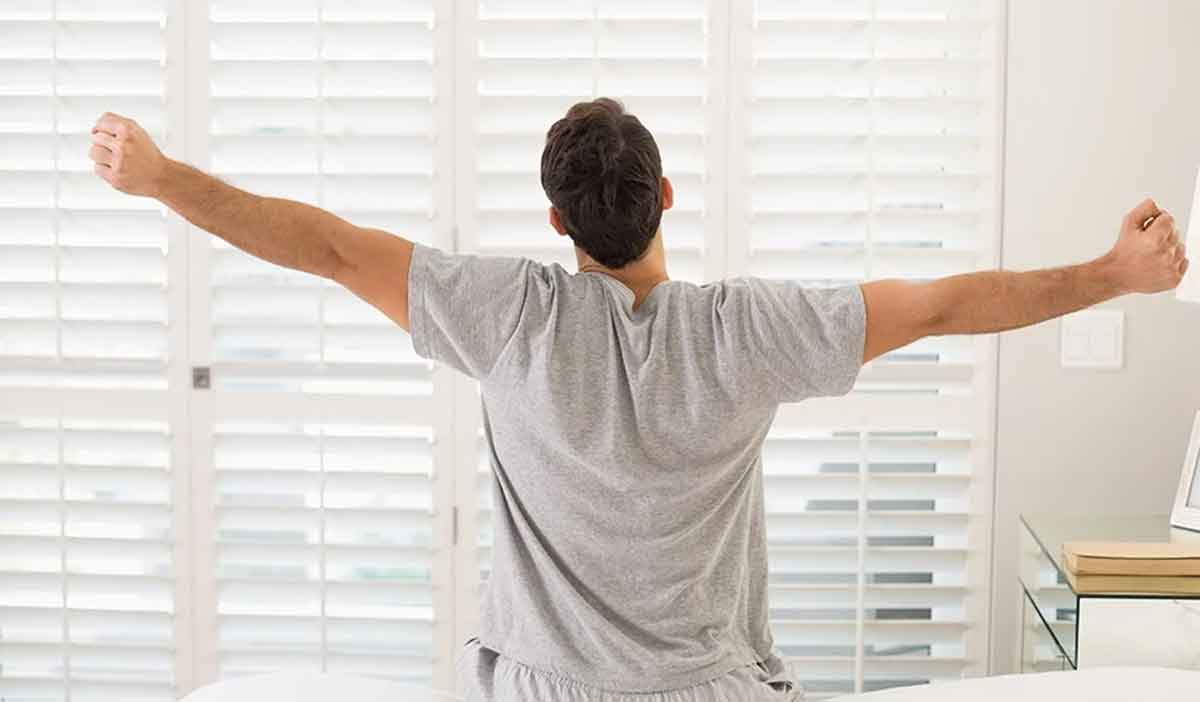Waking up feeling groggy, fatigued, or cranky and wondering how to sleep better at night? You’re not alone.
According to the Centers for Disease Control and Prevention (CDC), about one in three adults in the U.S. report not regularly getting enough sleep. Without adequate sleep, your overall health is impacted, including the ability to make decisions, emotional well-being, immune functions, and more.
Read on to learn more about the importance of a consistent sleep schedule and proven tips on how to sleep better every night for optimal health.
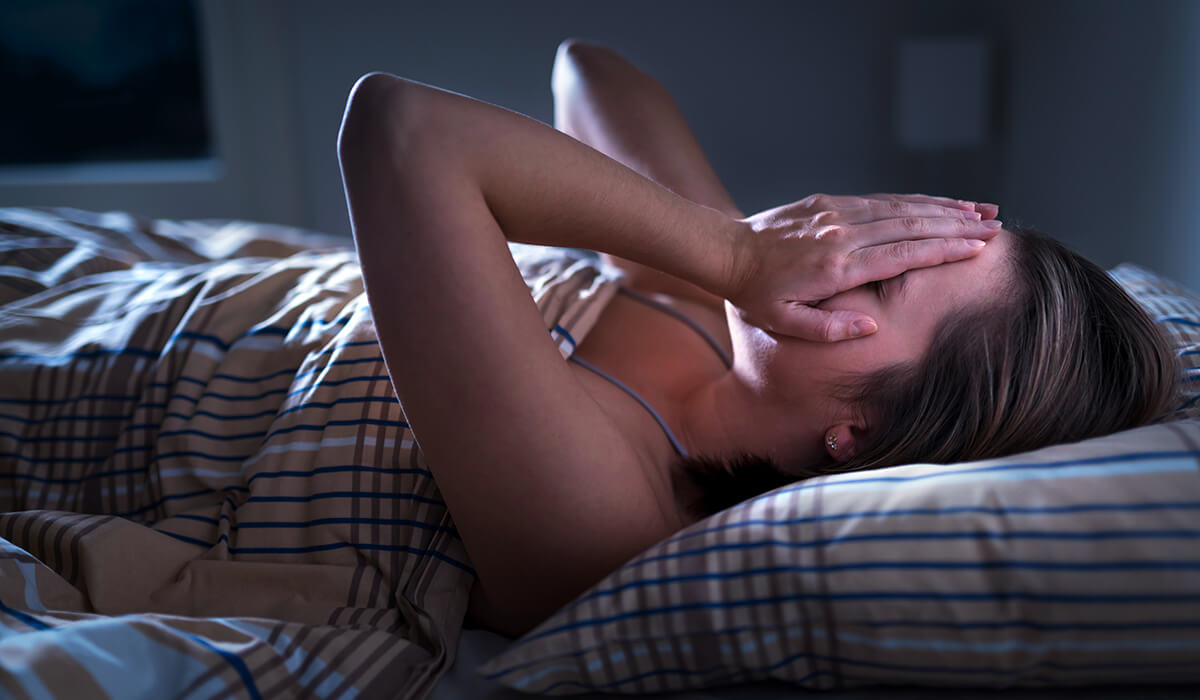
Why can’t I sleep at night?
There are many potential reasons why you may be having trouble falling asleep or staying asleep through the night. Sleep is impacted by different things for different people, but some common sleep disrupters include:
- Hormone fluctuations
- Stress or anxiety
- Certain medications
- Medical conditions, e.g., sleep apnea
- Stimulating activities or substances too close to bedtime
How much sleep do you need each night?
The optimal amount of sleep per night changes as we age. The CDC recommends the following hours of sleep by age:
|
Newborn |
0–3 months | 14–17 hours (including naps) |
| Infant | 4–12 months | 12-16 hours per 24 hours (including naps) |
| Toddler | 1–2 years | 11–14 hours per 24 hours (including naps) |
| Preschool | 3–5 years | 10–13 hours per 24 hours (including naps) |
| School Age | 6–12 years | 9–12 hours per 24 hours |
| Teen | 13–18 years | 8–10 hours per 24 hours |
| Adult | 18–60 years | 7 or more hours per night |
| 61–64 years | 7–9 hours per night | |
| 65 years and older | 7–8 hours per night |
Why is getting good sleep important?
Getting enough sleep isn’t just about feeling less tired the next day. Our bodies need rest to restore cells, repair tissues, and regulate hormones. Learning to sleep better is critical to physical and emotional well-being and overall health.
Though it may seem like your brain shuts down while you sleep, that couldn’t be further from the truth. While you sleep, your brain is busy compiling all the information you took in during the day and working to organize and retain your memories. It’s processing information to help with your cognitive function so you can be at your best when you’re awake.
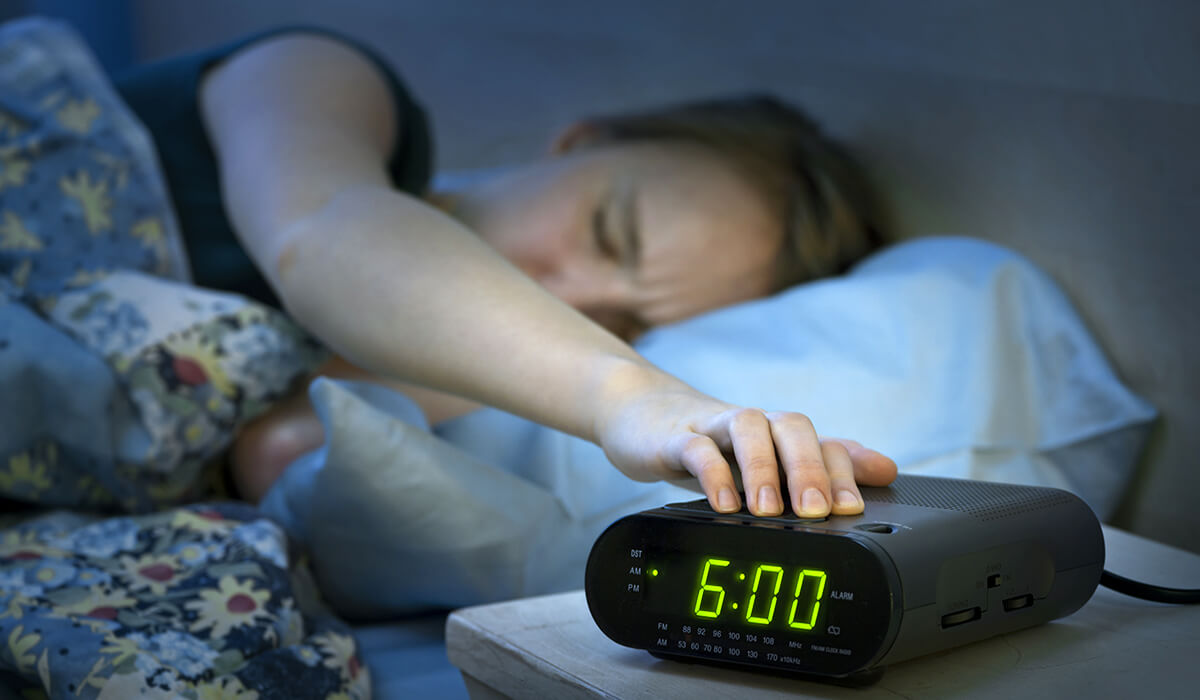
How to sleep better: 5 proven tips
If you’re having trouble winding down at bedtime or don’t feel like you’re getting a full, restful night of sleep, there are things you can do to help. Here are five things to try to get more shuteye.
1. Get plenty of sunlight during the day
If you struggle to get going in the morning, open up the shades or step outside and get some sunlight to start your day. This can help you wake up by letting your body know it’s daytime. Try to get as much sunlight as you can throughout the day, making it easier to fall asleep when it gets dark.
If you’re trying to figure out how to sleep better in the middle of winter with limited daylight, you can try a light therapy lamp. They’ve been shown to help some people with seasonal affective disorder.
2. Turn off devices and avoid caffeine and alcohol
You may already know that drinking caffeine close to bedtime can keep you awake, but did you know that looking at your phone or drinking alcohol can hinder sleep too?
Exposure to blue light from digital devices can impact sleep quality, so try to limit use (or not use them at all) close to bedtime. And while alcohol is known to induce relaxation and sleepiness, consuming it can also lead to poor sleep quality or make it harder to stay asleep. Alcohol use can even exacerbate the symptoms of sleep apnea in many people.
So instead of scrolling through Instagram with a cup of coffee or glass of wine before bed, opt for a nice hot cup of caffeine-free tea or a cold glass of water and a good book to wind down.
3. Exercise and quit smoking
When learning how to sleep better, don’t overlook the power of physical activity. Regular exercise can improve sleep quality, and in turn, getting plenty of sleep can help you feel more energized to work out. Even a moderate 30-minute walk can help you sleep better. (Just avoid vigorous exercise within three hours of your bedtime.)
Another key to good sleep is avoiding smoking. Nicotine is a stimulant (like caffeine) and can make it harder to fall asleep. Just add a better night’s sleep to the list of great reasons to quit smoking.
4. Create a relaxing wind-down routine
Creating a bedtime routine that includes relaxing activities can help prepare your body and mind for sleep. This could consist of a warm bath, meditation, or calming music—whatever helps you unwind.
Also, think about creating a comfortable bedroom environment made for sleep. One study found that during COVID-19 lockdowns, people spent more time in bed but reported lower sleep quality. So try not to hang out in bed during the day; when you crawl in at night, you want your body to know it’s time for sleep.
5. Create and stick to a sleep schedule
Pair your wind-down routine with a consistent schedule to maintain your circadian rhythm. The circadian rhythm is essentially the internal clock that regulates your bodily functions and sleep-wake cycles. When they’re out of sync, it can be hard to get good sleep.
If you’re trying to change your sleep schedule or work in more hours of sleep each night, start with 30-minute increments. Adjust or add 30 minutes to your schedule every three to four days until you get the optimal amount of sleep. It can take seven to 10 days to adjust to a new sleep schedule, so be patient and stay consistent.
LMH can help you figure out how to sleep better
Occasional sleepless nights are bound to happen now and again, but it may be time to talk to a sleep specialist if you’re having trouble sleeping more nights than not.
The sleep studies program at Logansport Memorial Hospital is designed to help diagnose common sleep issues and provide a course of treatment. We’re here to listen to your sleep problems, make a diagnosis, and create a personalized, cost-effective treatment plan.
We offer sleep testing on-site, and sleep studies are performed by a trained technician and evaluated by a physician. Participation is by physician referral only, so talk to your doctor about how to sleep better and if a sleep study is right for you.
